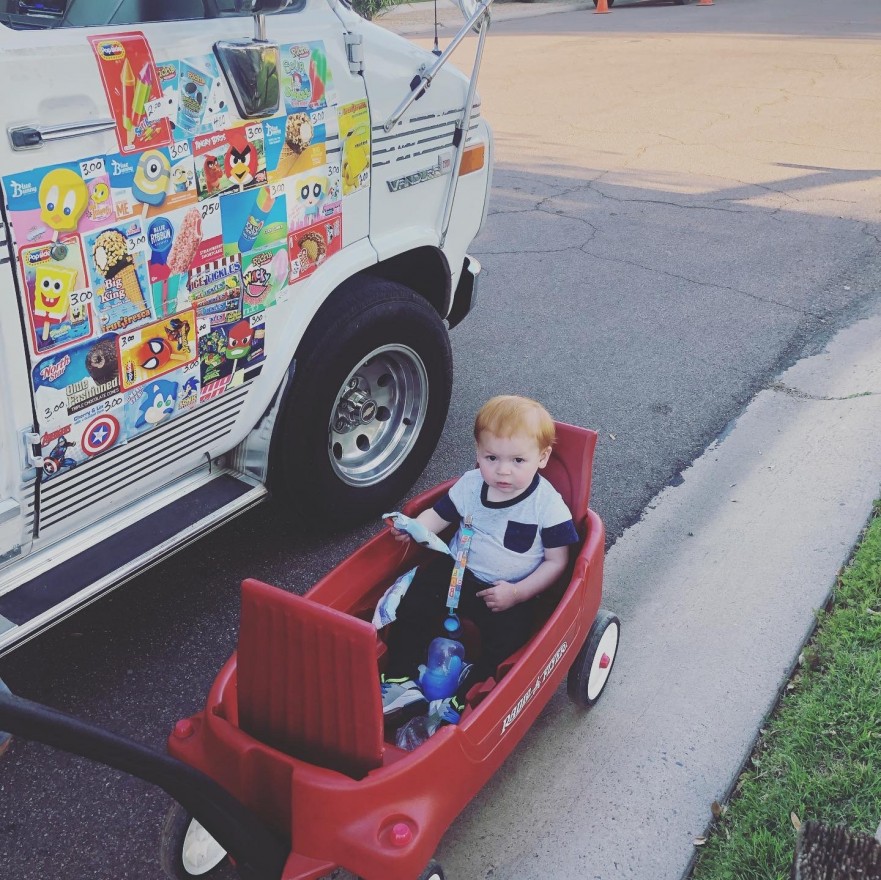Rise and grind. Three little words that have summed my entire life, and I would guess many others as well.
As a kid, my parents instilled the idea that we achieved when we worked hard day after day without fail. During high school, that meant a zillion clubs and sports, multiple AP classes, jobs, and volunteer work.
And as an adult, that means working long hours, accepting extra duty and extracurricular positions, continuing education and professional development, and volunteering for organizations on top of all the household chores that never seem to go away. How can three people create so many dirty dishes and so much laundry?
Before the pandemic, the rise and grind mentality was the foundation for my little family. I packed every weekend with activities, projects, and outings. Whether at work or home, there was always something more to do.
However, when the pandemic hit, our lives suddenly came to a grinding halt. We were confined to our home with many of our daily activities either gone or drastically changed.
For the first time, working from home gave us time to eat three meals a day together at the kitchen table. Without commuting, we were able to take bike rides or go for walk enjoying our neighborhood, the weather, and each other’s company. We even found an ice cream truck that regularly drove our neighborhood, and my kid ate ice cream while sitting in his little red wagon. What a priceless memory!
In other words, we slowed down. There wasn’t always another task to complete. It felt weird but oddly nice.
We were living what some call grind or hustle culture until the pandemic. Grind or hustle culture is a culture of raw achievement where longer and longer hours are not just the norms, they are the metric for success. I saw productivity as a measure of success. The more I completed, the more successful I felt in my professional and personal life.
A teacher’s Instagram account I follow shared about grind culture in schools. This got me thinking about my classroom and how I have perpetuated grind culture. When students finished an assignment, I trained them to ask “What should I do now?’ I, in turn, fed them more work. I provided enrichment activities or something I thought was “fun” to keep them working bell to bell.
But what was I telling students when I kept them busy every second of every day in my classes?
More work=success in my class. I started wondering if this was a realistic portrayal of their learning? Does doing more, mean more learning? Does doing more, mean earning a better grade?
Or have I been doing it all wrong this entire time?
So, I stopped.
I stopped giving more work. When a student finishes an assignment and they ask what should they do next, my reply is, “Whatever you want to do that you find interesting or rewarding.” I am giving my kids permission to enjoy their free time in the ways they want to enjoy it.
The first time I used this reply, I sent it via the chatbox in my virtual classroom. The student instantly replied, “Thank you!” I have no idea how she used her time because I couldn’t see her at home. But, I hope she took a second and breathed a sigh of relief before doing or not doing something she actually wanted to do.
The next time I told a student to enjoy her time, I walked by her desk several minutes later. I saw her reading about World War I. I stopped and asked her if she was doing homework for her history class. She said, “No, I really love learning about it.” Wow. Learning for the joy of learning. That hit me like a ton of bricks.
In a time when kids are learning in an entirely new way during the pandemic, giving our students the gift of free time rather than an extra task, we can decrease some of the stress of life and replace it with joy and peace.
Does writing one more vocabulary sentence or completing one more math problem drastically change their lives? I would argue no. Does giving a kid a few minutes to play a game on their phone or spend some time with their family change their lives? I certainly hope so. With so much lost right now, we have the power to give them some happiness
Are you a riser and grinder in your classroom or have you found ways to rise and relax? Leave a comment below.










Comments 6
I am, too, a former rise and grinder. As I was reading your post I was making a mental checklist of all the things I have also done. I had a similar realization working from home during the pandemic, and that is the truly invaluable gift of family time. I have a 1 and a half-year-old, and this is time with him that I never would have gotten otherwise. I’ve learned that it is okay to relax for a minute (or ten) and not have every second of every day accounted for. Downtime is so important for our brains to learn, so giving our students some downtime helps them retain the information that we taught, so that’s a good thing!
Author
Yes! We need down time too!
Intentional downtime comes right after food, water, and shelter as a basic need for me. I know I always want to have something for students to do next, but have also learned to say, “When you’re done with this, you’re done for the day.” Or, if I’m well planned out to be able to say by Thursday, “When you’re done with this, you’re done for the week.”
In class, if we finish a few minutes early, I let the online students go, and as the in person students if anyone’s doing anything cool after school. It’s a great way to get to know them better.
All in all, I’ve come to the conclusion that almost nothing is lost by not piling on work – with the caveat that the job has been well done.
Author
I agree!
Like most educators, I am a riser and grinder. When a system is built on learning and continuous improvement it is hard not to be. But that can be so detrimental for kids Even in my own daughter, I wonder if there was joy or if she just tried to do all the things because that is what she was expected to do. I hope we can all learn to accept where we are a bit more and not rush to accomplish it all.
Author
Thank you for the comment! It’s a hard habit to break for sure.